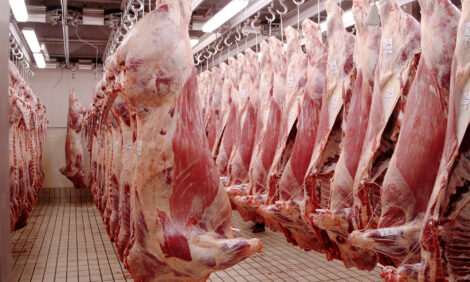



COOL should be implemented sooner, not later
US - Hurrah for the senators - led by Sens. Max Baucus, D-Mont., Craig Thomas, R-Wyo. and our own John Thune - who are sponsoring legislation to move the deadline for implementing country-of-origin labeling to Sept. 30 - one year ahead of the current deadlineSen. Thune said in a release, "This delay hurts South Dakota's cattle producers and treats consumers with disdain. I will continue to work with my colleagues who support mandatory COOL to fight this delay and secure an earlier implementation date."
As well they should.
Country-of-origin labeling was originally included in the 2002 farm bill and was set to go into effect on Sept. 30, 2004, for beef, lamb, pork, fish, fruits and vegetables. That "deadline" was never met because Congress has pushed back the deadline for all products in the bill except seafood over and over and over again.
Here, in general, is how COOL would work: When implemented, only meat from animals born, raised and slaughtered in the United States would be eligible for USDA's "U.S. Meat" label.
Right now if beef from any foreign country is held in the United States for the prescribed number of hours before it is slaughtered, it can carry the USDA seal.
While imported beef slaughtered in the United States can still carry a USDA seal after the new rule goes into effect, it must also list the country of origin.
That only makes sense, and, according to a 2003 Colorado State University study, consumers are willing to pay for it.
That study, which involved 300 people in Chicago and Denver, showed that more than 70 percent would be willing to pay more for steak and hamburger and 75 percent wanted their meat labeled by country of origin.
Additionally, results of a poll released in January 2004 showed that 81 percent of Americans think that food should be labeled with country-of-origin information. The poll, conducted by Penn, Schoen & Berlkand Associates Inc., an Internet survey group, was done for the National Farmers Union.
Source: Aberdeen News


